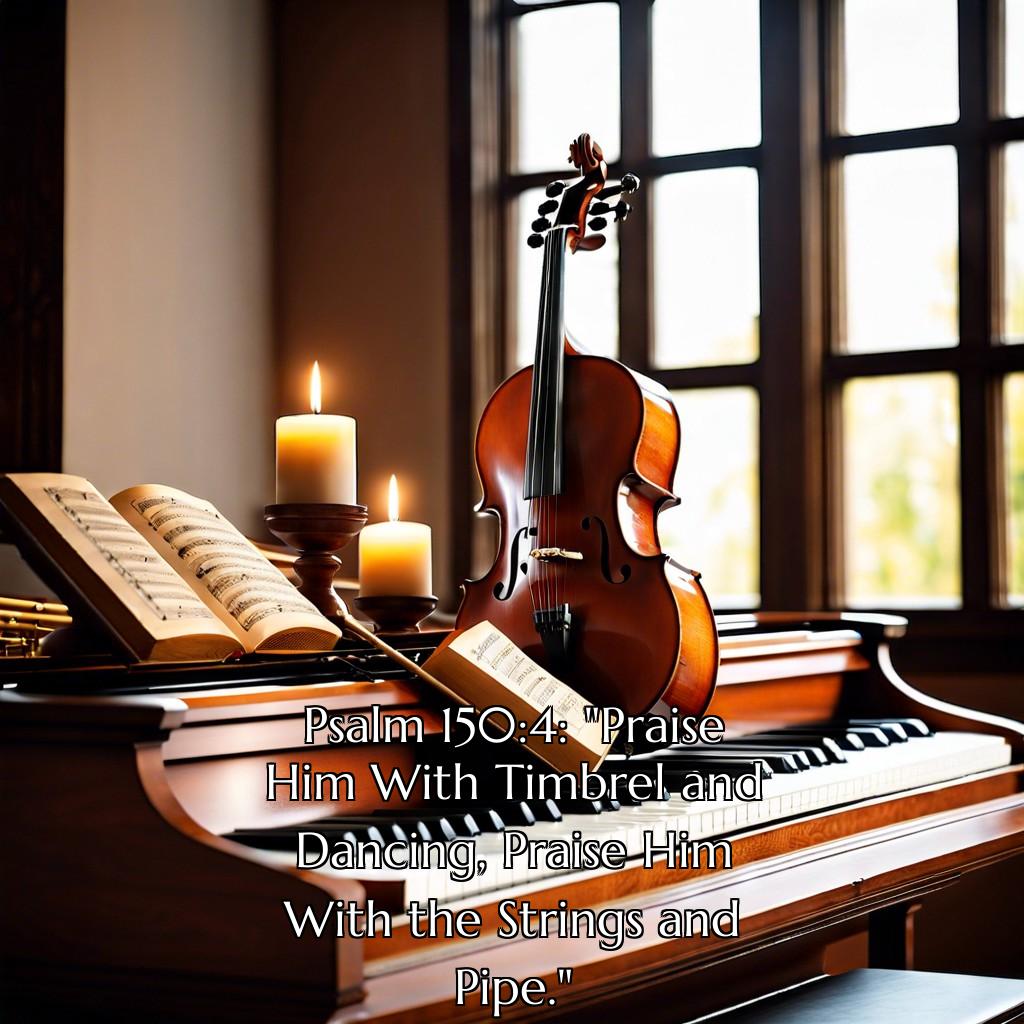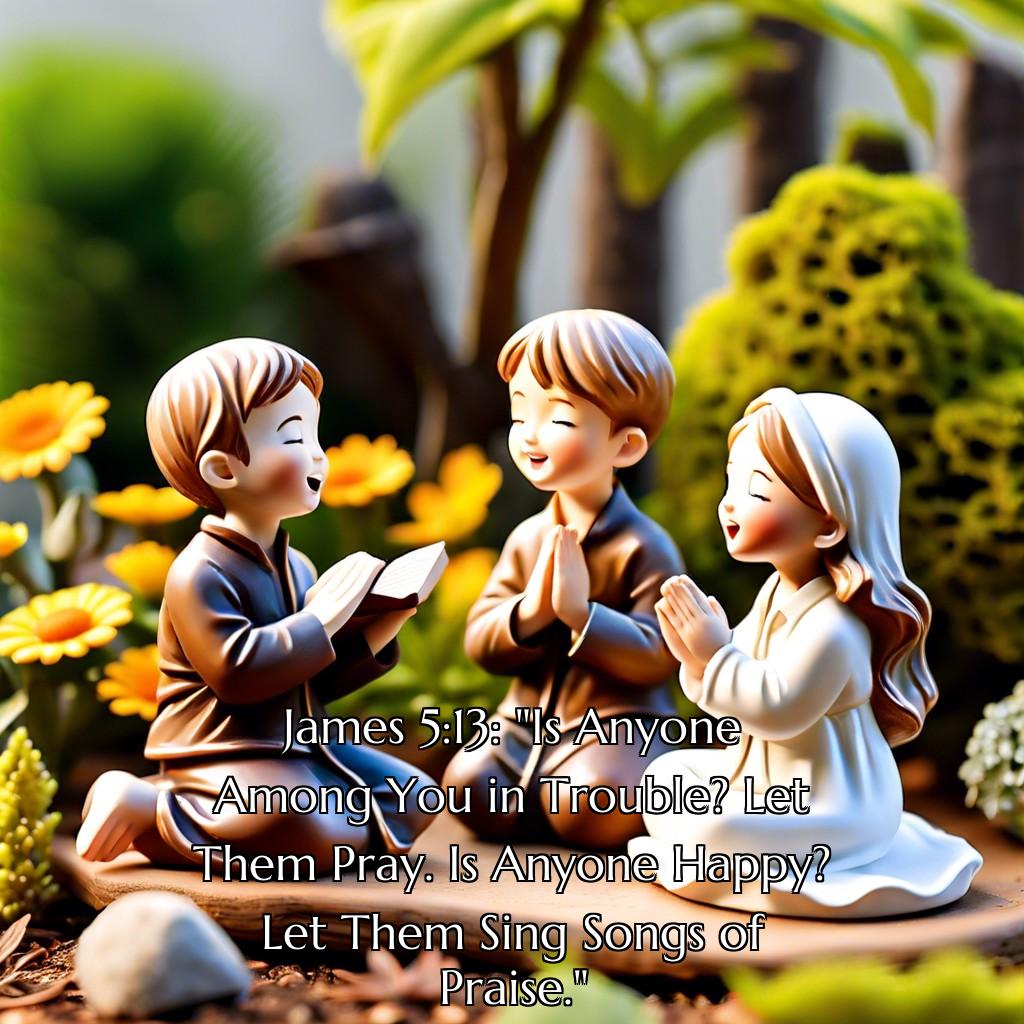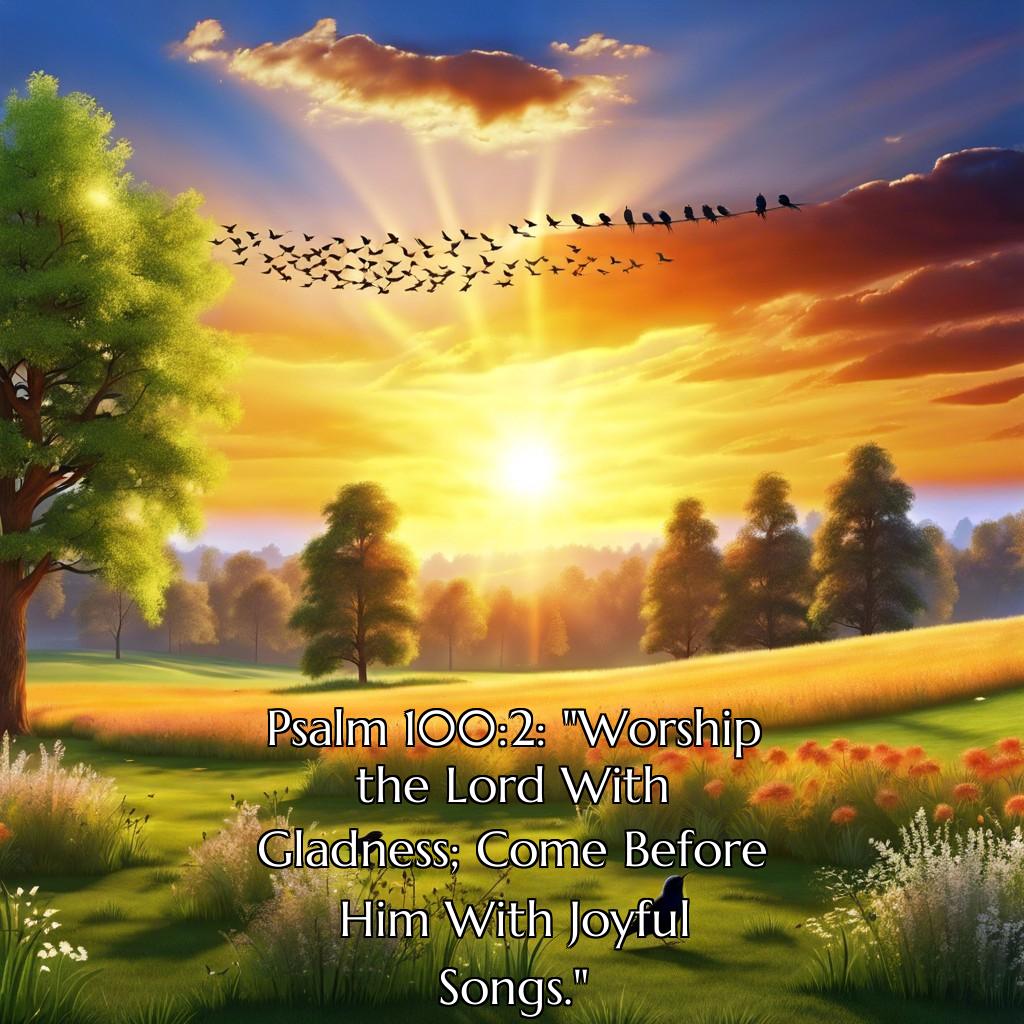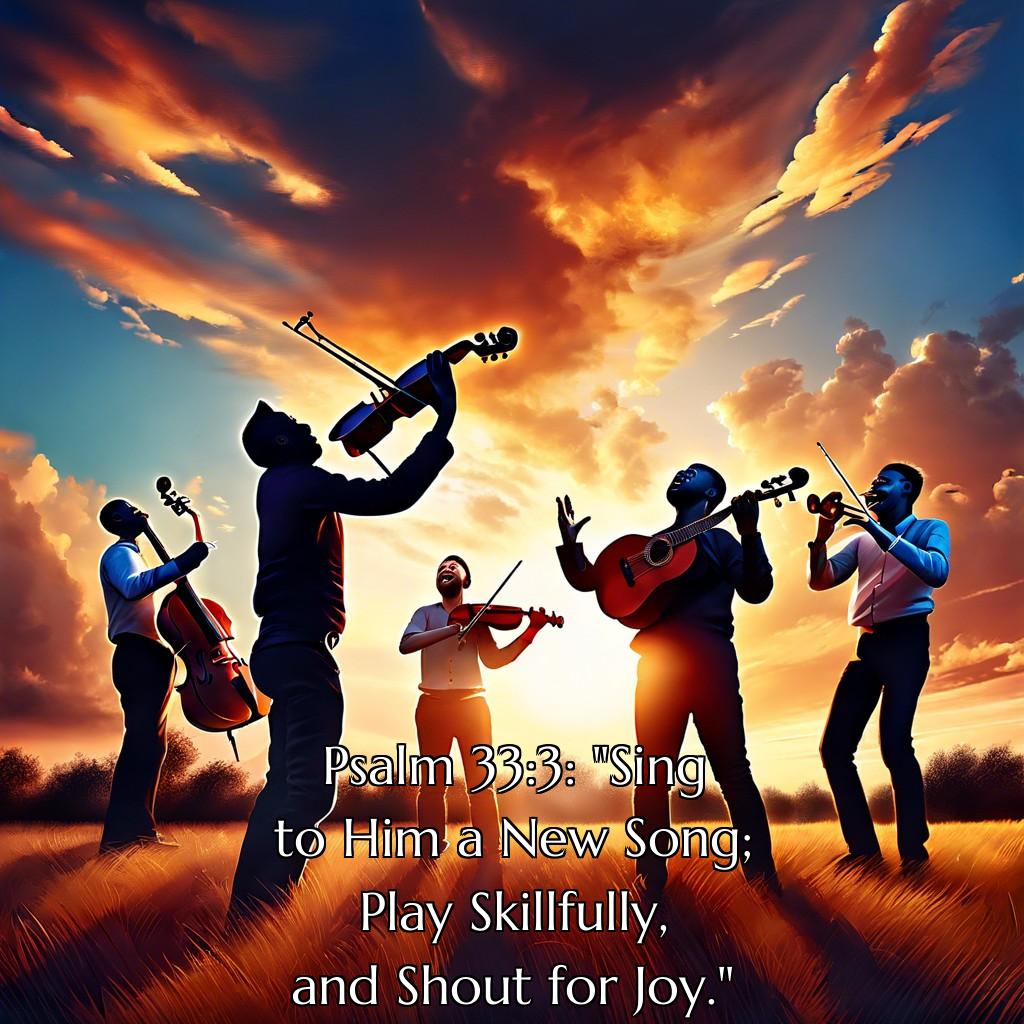This article highlights ten Bible verses about music, explaining their meanings to show how music is used in worship and everyday life within the scriptures.
Music has always held a special place in the hearts of believers, serving as a powerful medium to express joy, gratitude, and worship. The Bible, rich with references to music, paints a vivid picture of how melody and song elevate our spirits and deepen our connection with God. In this article, we’ll explore verses that highlight the significance of music in our faith, showcasing its divine purpose and transformative power. Dive in to discover how scripture celebrates the harmony between music and spirituality.
Psalm 95:1: “Come, Let Us Sing for Joy to the Lord; Let Us Shout Aloud to the Rock of Our Salvation.”

Psalm 95:1 invites us to express our joy and gratitude to the Lord through singing. This verse emphasizes spontaneous and wholehearted worship.
Joy: Singing for joy signifies an overflow of happiness and contentment found in God’s presence.
Community: This call to song isn’t just personal. It’s a communal invitation to unite in worship and experience shared joy.
Acknowledgment: Referring to God as “the Rock of our salvation” emphasizes His steadfastness, reliability, and the secure foundation He provides.
Expression: Shouting aloud signifies uninhibited praise, showing that our worship should be fervent and unreserved.
This verse teaches us that music and singing are powerful ways to express our relationship with God and our appreciation for His unending faithfulness.
Colossians 3:16: “Let the Message of Christ Dwell Among You Richly As You Teach and Admonish One Another With All Wisdom Through Psalms, Hymns, and Songs From the Spirit, Singing to God With Gratitude in Your Hearts.”

This verse emphasizes the profound role music plays in the spiritual life of believers. Music here isn’t just a form of artistic expression but a medium to embed Christ’s message deeply in our hearts.
Through psalms, hymns, and spiritual songs, we are encouraged to:
- Teach: Sharing wisdom and insights about God’s word through music can be a powerful tool for learning and mutual edification.
- Admonish: Songs can offer gentle corrections and reminders, guiding each other back to spiritual truths.
- Express Gratitude: Singing with gratitude strengthens our relationship with God, transforming everyday moments into opportunities for heartfelt worship.
Such practices make our spiritual community richer and more connected. Music becomes a bridge, linking our hearts directly to divine wisdom and gratitude.
Ephesians 5:19: “Speaking to One Another With Psalms, Hymns, and Songs From the Spirit. Sing and Make Music From Your Heart to the Lord.”

Paul encourages believers to communicate and uplift each other using spiritual songs. Music isn’t just for personal devotion but also for community building. It helps to:
- Foster unity: Shared musical worship strengthens bonds among believers.
- Reflect God’s grace: Singing from the heart shows genuine gratitude and love for God.
- Inspire wisdom: Psalms, hymns, and spiritual songs often carry deep theological truths that can instruct and edify.
This verse emphasizes the heart’s role in worship. It’s not just about the melody or words; it’s about sincere expression, turning music into an act of devotion and mutual encouragement.
Psalm 150:4: “Praise Him With Timbrel and Dancing, Praise Him With the Strings and Pipe.”

This verse highlights the importance of praising God with a variety of musical instruments and even dance. It emphasizes that worship is not confined to just singing or speaking but can be expressed through different forms.
First, the timbrel (similar to a tambourine) and dancing show that joy and celebration are integral parts of worship. Music invites physical expression, reflecting the joy in our hearts.
Second, the strings and pipe symbolize more structured and melodic worship. Instruments like harps, lyres, and flutes create harmonious melodies that can elevate the worship experience.
Finally, the inclusion of multiple instruments underscores the idea that all types of music, whether rhythmic or melodic, can be used to glorify God.
1 Chronicles 16:9: “Sing to Him, Sing Praise to Him; Tell of All His Wonderful Acts.”

This verse emphasizes the importance of expressing our gratitude and reverence for God through song and praise.
- Music is a powerful form of worship:
- It connects us emotionally and spiritually, creating a deeper communion with God.
- Singing allows us to express our worship in a dynamic, personal way.
- Praise can rejuvenate our spirit and reinforce our faith.
- The verse also reminds us to recount God’s wonderful acts:
- Sharing stories of God’s miracles and blessings strengthens the community.
- It serves as a testimony of faith that can inspire others.
- Remembrance of His deeds keeps our faith vibrant and alive.
Incorporating praise into our daily routine helps us maintain a thankful heart and a positive outlook, reminding us of God’s unending grace and mercy.
Psalm 98:4: “Shout for Joy to the Lord, All the Earth, Burst Into Jubilant Song With Music.”

This verse emphasizes a few significant ideas. First, it highlights the inclusivity of worship, calling on all the earth to participate. Music is a universal language, transcending cultural and linguistic barriers, which makes it a powerful tool for collective worship.
Secondly, the verse encourages joyful expression. Joyous music and jubilant songs illustrate the celebratory aspect of faith, reminding us that worship isn’t solely solemn but can also be exuberant and full of life.
Lastly, the act of bursting into song signifies spontaneity and genuine emotion. True worship often flows naturally from a heart overwhelmed by the greatness of God. Music, in this sense, becomes an overflow of the soul, a natural reaction to God’s goodness.
James 5:13: “Is Anyone Among You in Trouble? Let Them Pray. Is Anyone Happy? Let Them Sing Songs of Praise.”

Trouble and happiness are universal experiences. This verse offers a simple yet profound response to both. When facing difficulties, prayer becomes a lifeline, a direct conversation with God where one seeks guidance, comfort, and strength.
On the flip side, happiness is expressed through songs of praise. Singing in times of joy not only acknowledges God’s blessings but also spreads that joy to others. Sharing in musical worship brings a community together, uplifting spirits and reinforcing faith collectively.
In essence, the verse advocates a balanced spiritual life: turning to God in both highs and lows. Music and prayer thus become intertwined ways of maintaining that connection, ensuring God’s presence is felt in every aspect of life.
Psalm 100:2: “Worship the Lord With Gladness; Come Before Him With Joyful Songs.”

God desires heartfelt worship. “Gladness” in this verse speaks of the joy that should accompany our worship. It’s not merely about singing; it’s about the emotion and sincerity behind it.
One key point is that worship should be an expression of genuine happiness and gratitude. This joy is a testament to our recognition of God’s goodness.
The phrase “joyful songs” indicates that our worship can be vibrant and full of life. Music serves as a powerful medium to convey our emotions and devotion to God.
When we approach worship with a joyful heart, it can transform our spiritual experience. This joy not only honors God but also uplifts our own spirits and those around us.
Remember, worshiping with gladness is an invitation to celebrate our relationship with God openly and passionately.
Psalm 33:3: “Sing to Him a New Song; Play Skillfully, and Shout for Joy.”

In this verse, we are encouraged to bring creativity and passion into our worship. God values freshness—new songs symbolize the ever-evolving expressions of our faith and experiences.
First, “play skillfully” suggests that our talents and efforts matter. Practicing and honing musical skills is a form of honoring God, indicating that the quality of our worship reflects our reverence.
Second, the phrase “shout for joy” invites us to be exuberant. This is not about being somber but about experiencing and expressing joy in God’s presence.
Lastly, it’s about renewal. New songs can reflect the new mercies we experience and our ever-growing understanding of God’s grandeur. Engaging in this dynamic expression keeps our spiritual life vibrant.
Isaiah 12:5: “Sing to the Lord, for He Has Done Glorious Things; Let This Be Known to All the World.”

Isaiah emphasizes music as a powerful tool to express gratitude. Singing serves as an acknowledgment of God’s magnificent deeds.
Music transcends barriers, making it an effective means to share God’s wonders globally. The verse highlights the importance of public praise, encouraging believers to spread the message far and wide.
Key points to consider:
- Singing as an act of worship: It’s not just about the melody but the intent.
- Proclaiming God’s glory: Use music to make known His deeds.
This verse invites all to participate, signaling that music is a communal and inclusive way to celebrate faith.





